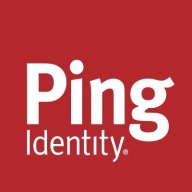

Informatica Intelligent Data Management Cloud (IDMC) and Ping Identity Platform compete in data management and identity management, respectively. While IDMC shines in data integration and quality, Ping Identity excels with security features like multi-factor authentication, making it a safer option for secure access management.
Features: IDMC stands out with flexible data integration, supporting a variety of management styles. It offers comprehensive tools like master data management and data quality, providing seamless integration across data types. Meanwhile, Ping Identity Platform is recognized for strong identity management, focusing on multi-factor authentication and robust security tools, making it preferred for ensuring secure access.
Room for Improvement: IDMC needs improvements in its user interface and data stewardship, along with more preconfigured business rules and integrations. It also faces issues with reporting and performance when handling large datasets. Ping Identity Platform could work on better integration with other platforms and enhance its admin UI for a better user experience, along with improving device tracking for heightened security.
Ease of Deployment and Customer Service: IDMC offers flexible deployment options across on-premises, public, and hybrid clouds, although customer service reviews vary based on the specific service contract. Ping Identity Platform mainly runs on on-premises and hybrid systems, receiving generally positive feedback for its timely technical support and knowledgeable staff.
Pricing and ROI: IDMC's high cost is a concern for some clients despite its robust feature set. Its flexible pricing is seen as complex, but users report positive ROI, especially in data integration. Ping Identity Platform is considered a cost-effective choice, particularly for large enterprises, providing good pricing and fast transaction processing, with solid ROI in enhancing security and efficiency.
If they are unsure how to resolve an issue, they keep customers informed, providing updates about progress and ensuring communication with the product team to deliver accurate responses.
Due to the tool's maturity limitations, solutions are not always simple and often require workarounds.
The response time is pretty good because we have someone in-house, who is an expert from Informatica, in our team who can help us with any sort of queries usually.
I have reached out to technical support for troubleshooting SAML certificate mismatches and federated errors between Ping and enterprise apps.
As a SaaS platform, IDMC is quite scalable and provides complete flexibility.
Stability is crucial because IDMC holds business-critical data, and it needs to be available all the time for business users.
The licenses are too expensive compared to before, which is why customers are now preferring other data metadata management tools like OneTrust, Collibra, and Azure Purview.
The tool needs to mature in terms of category-specific attributes or dynamic attributes.
The observability concept in Informatica Intelligent Data Management Cloud (IDMC) needs improvement as the capabilities are not up to the mark compared to the industry.
I would like to enable ServiceNow Generative AI for auto-diagnosing PingFederate SSO failures and suggest remediation steps.
It ranges from a quarter million to a couple of million a year.
The licenses are too expensive compared to before, which is why customers are now preferring other data metadata management tools like OneTrust, Collibra, and Azure Purview.
I think the costs are reasonable for the kinds of features that Informatica Intelligent Data Management Cloud (IDMC) has.
In on-premise, we call it EDC for metadata management, while in cloud-based technologies, it is known as the Metadata Command Center, which serves the same purpose as EDC concerning CDGC.
Informatica Intelligent Data Management Cloud (IDMC) can connect to pretty much any application, including Oracle Analytics and Power BI, and it works quite seamlessly.
The platform's ability to pull in data from other platforms without the need for an additional integration tool enhances its appeal.
The platform enhances security measures by analyzing multi-factor authentication attempts, highlighting suspicious patterns, and generating compliance reports.


Informatica Intelligent Data Management Cloud (IDMC) is a robust platform used by banks, financial institutions, and health sector organizations for data management, governance, and compliance.
IDMC provides comprehensive tools for data discovery, profiling, masking, and transformation. It supports Salesforce integration, real-time data streaming, and scalable data management solutions. Health organizations manage national product catalogs while financial entities focus on data protection and regulatory compliance. Its intuitive interface, flexible features, and robust tools make it valuable across sectors, though enhancements in data integration and human workflow are being sought.
What are the most important features?
What benefits and ROI should be considered?
Banks and financial institutions use IDMC for data masking, transformation, and compliance, while health sector organizations leverage it for national product catalogs. Industry applications focus on automating business processes, centralizing data, and managing data catalogs to meet regulatory demands and ensure data protection.
We monitor all Data Governance reviews to prevent fraudulent reviews and keep review quality high. We do not post reviews by company employees or direct competitors. We validate each review for authenticity via cross-reference with LinkedIn, and personal follow-up with the reviewer when necessary.